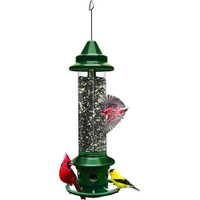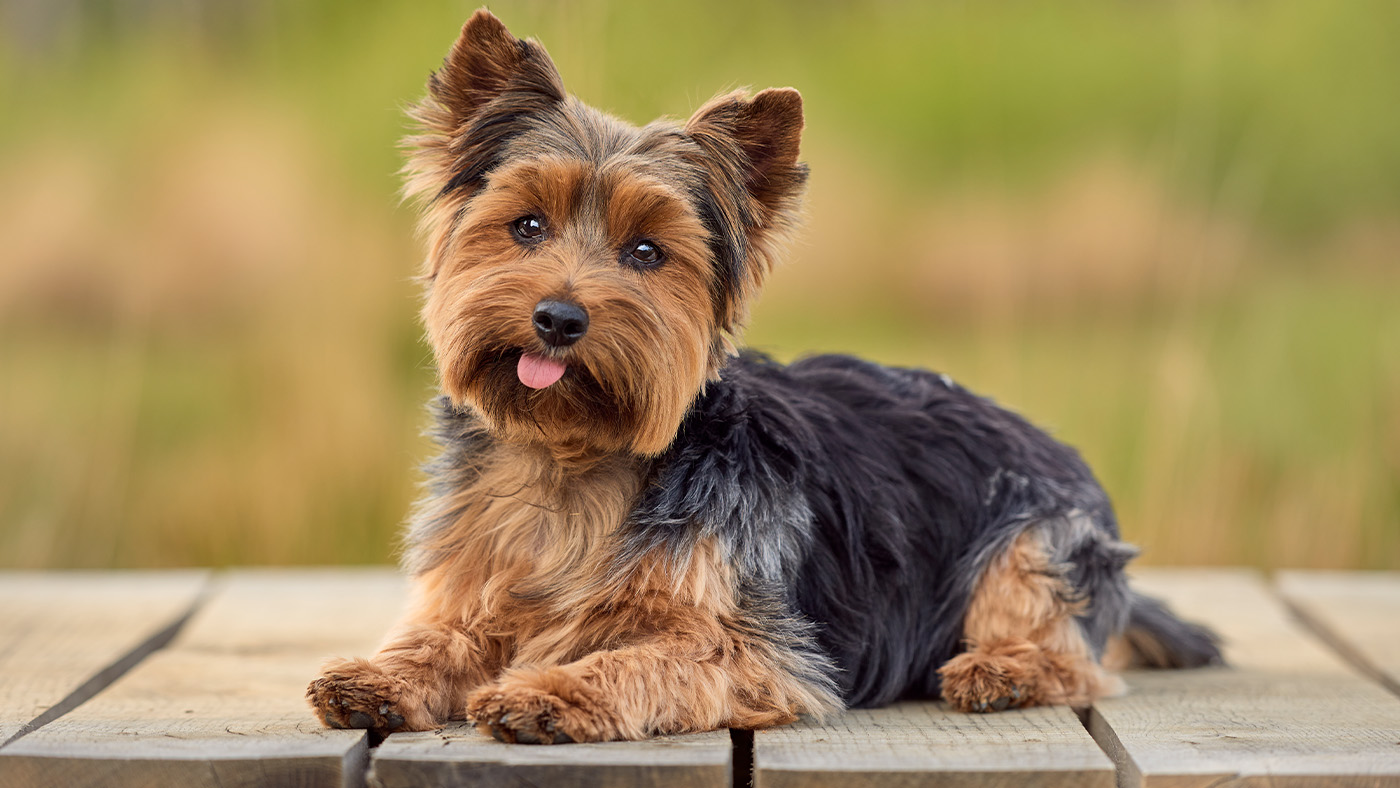How to keep squirrels out of your bird feeder
Wondering how to keep squirrels out of your bird feeder? Try these five simple tips from a vet.
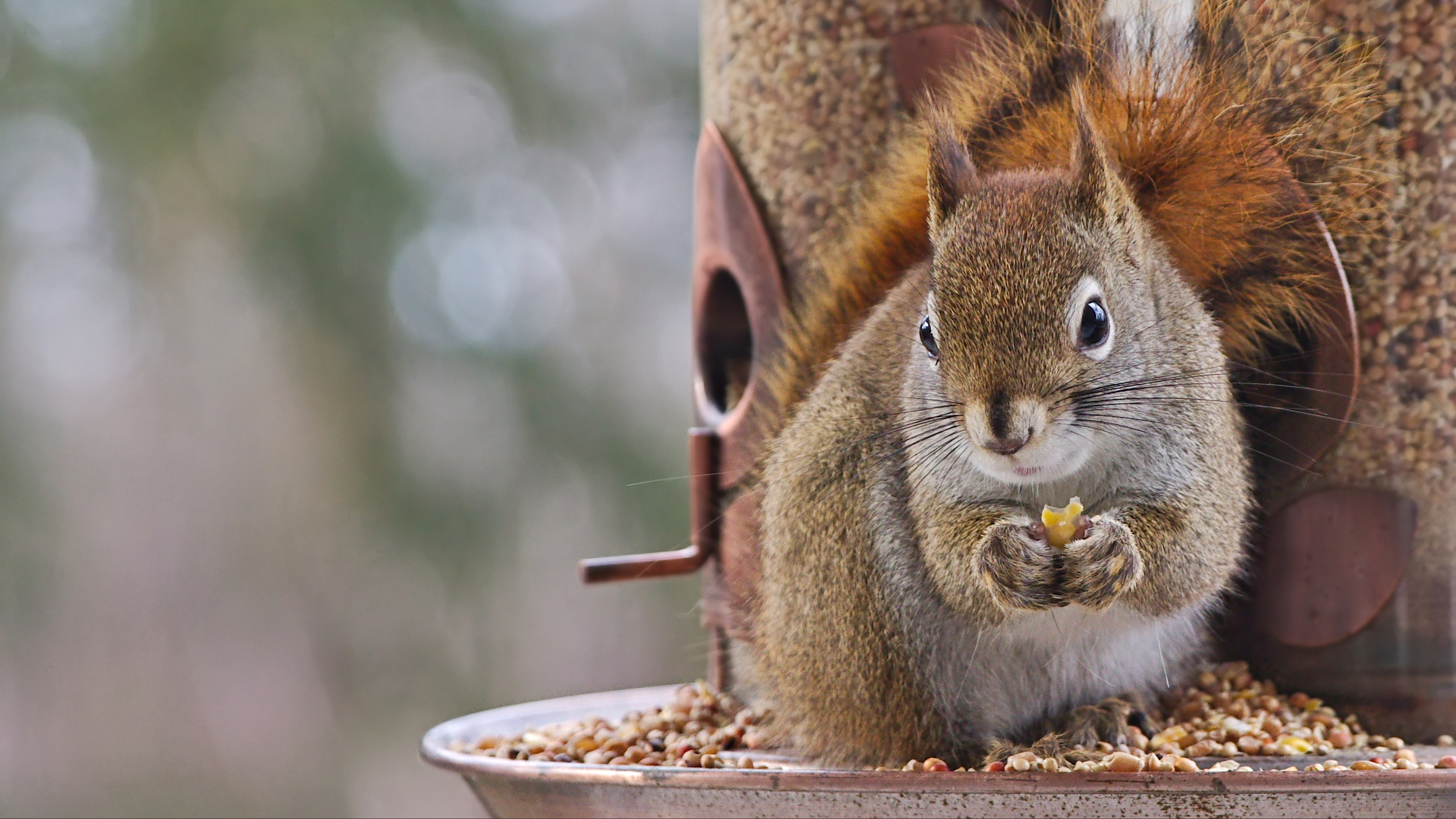
Trying to figure out how to keep squirrels out of your bird feeder is likely high on your priority list if you enjoy attracting flocks of feathered friends to your garden. Squirrels are notorious for trying to break into feeders to steal nuts and seeds, but thankfully there are plenty of humane ways that you can deter them.
Investing in one of the best squirrel-proof bird feeders is a great place to start. Unlike traditional feeders, these have been specifically designed to allow birds to get in but keep squirrels out. While these are a great help, it’s worth noting that there’s currently no such thing as a completely squirrel-proof bird feeder, so we recommend pairing this with other methods.
Because protecting their food source is such an important part of taking care of wild birds, we turned to expert vet Dr. Rebecca MacMillan to get her thoughts on the best ways to keep squirrels out of your bird feeder. Below, she reveals her top four tips — and they’re super simple to implement!
How to keep squirrels out of your bird feeder
1. Consider the type of feeder you use
When it comes to keeping squirrels out of your bird feeder, the best way to do this is to purchase a feeder that's been designed with that purpose in mind. Choosing a feeder that's been constructed to prevent squirrels from being able to access what's inside is the easiest way to give yourself peace of mind that your bird food is getting to the desired recipients!
However, if you already have one of the best bird feeders and don't want to swap it over or you simply don't have the money right now to be splashing out on a fancy squirrel-proof feeder, Dr. MacMillan says there are some simple things you can do to keep those furry foodies out.
"If your feeder doesn’t come with any special designs, you can always add to it," she explains. "A squirrel ‘baffle’ can be purchased which you can position underneath the feeder or hang above it. This will prevent the squirrel from being able to climb onto the feeder. Alternatively, squirrel-proof caging could be added around your feeder. The right size gaps in the caging will let birds get through but not squirrels."
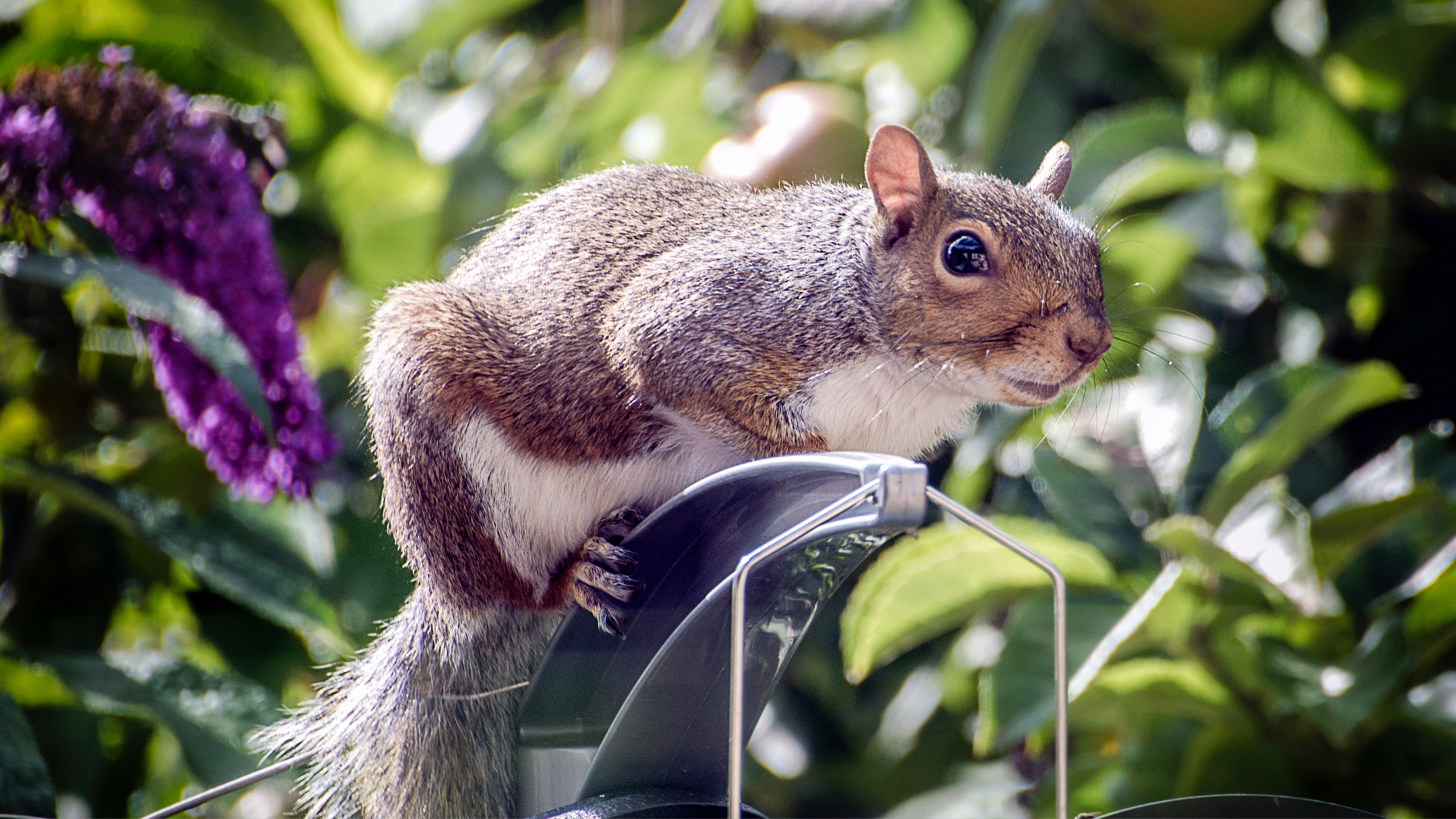
2. Elevate the feeder
Squirrels are not only amazing climbers, but they can jump over five feet vertically and seven feet horizontally. So it’s important to make sure your bird feeders are placed away from anything that they might be able to use to jump off, whether that’s a tree branch, a roof tile or garden furniture.
"Elevating your feeder so that it is at least 5 feet high from the ground can deter squirrels. Choose a PVC or copper pole as these are harder to climb than wood. Just ensure that it is also at least 7 feet away from any nearby fences, trees, or walls as a determined squirrel could run and jump onto the feeder."
If you’ve got a small garden and this is too difficult, try creating hurdles to outsmart the clever critters. If your feeders are hung on a wire between two trees, thread a few cones, old sewing spools, discs or plastic bottles to the wire so that when the squirrel attempts to climb across the objects will spin and the squirrel will fall off.
Finally, make sure the area around your bird feeder is kept tidy. It’s not the bird feeder that’s likely to catch the squirrel’s attention, but the food that the birds have dropped on the ground, so try to clean up after them to avoid attracting the wrong visitors.
As a last resort, stop putting food out for a while and see if they lose interest in your garden.
If you're looking for an effective squirrel-proof feeder, this one is top of our list. When an adult squirrel climbs on to the feeder, its weight will force a shroud to close down over the feeding ports, preventing access to the tasty morsels within. And because the tube isn’t made of mesh, there are no other ways for the squirrels to gain access.
3. Choose your food wisely
When it comes to selecting the best bird food for your beaked buddies, you'll want to consider your options.
The main problem is that the feed that attracts most birds, such as black oil sunflower seeds, nuts and suet, also attracts squirrels. These bushy-tailed mammals love to eat peanuts, sunflower seeds, fruit and corn, so aim for bird feed that doesn’t rely on these ingredients.
"Squirrels don’t tend to enjoy safflower seeds, nyjer seeds, and white proso millets," says Dr. MacMillan. "Sticking to these food items could deter a squirrel from raiding your feeding station."
If you don’t have the heart to let the squirrels go hungry while the birds enjoy their food, why not feed them separately?
"You could distract squirrels away from the bird feeding station by offering them their own food," Dr. MacMamillan advises. "Squirrels particularly like peanuts and dried corn on the cob, but they also enjoy a variety of other nuts and fruit like apples and pears. Set up their feeding zone away from your bird feeding area, with accessible, easy-to-clean platforms."
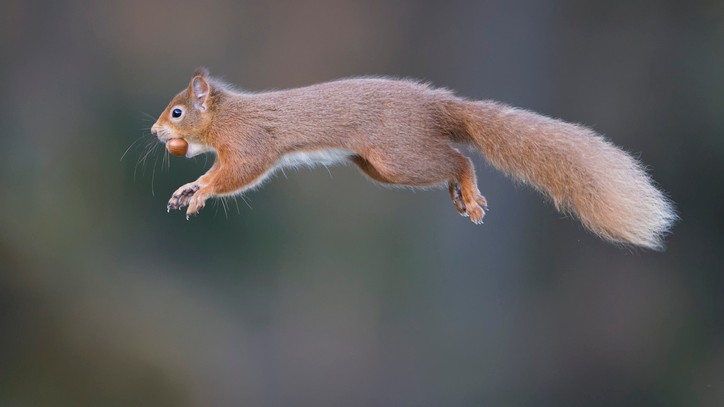
4. Add deterrents
You could discourage squirrels from coming into your garden by using objects that move, like decorative spinners. These can confuse squirrels and make them wary. Position them nearby to your bird feeding station to act as deterrent. It is most effective to use a few spinners of different designs.
There are also deterrents that you can add to the food itself. For example, it turns out that our feathered friends don't have the same taste buds that squirrels have when it comes to hot and spicy food.
When your mouth burns from eating spicy food, that's caused by a substance called capsaicin. Mammals (like humans and squirrels) have specific receptors in our mouths that react to hot and spicy foods, but birds don't have these.
That means birds will quite happily chow down on food that has been sprinkled with dehydrated cayenne pepper, whereas squirrels won't go near it. Definitely worth a try if you're looking for another way to keep squirrels away from your beaked buddies food supply!
Keen to get to know more of the birds in your neighbourhood? We've got you covered in our guide to how to attract birds to your garden. Plus, here's what to feed birds from the kitchen if you're looking for inspiration on delicious dishes you can serve up.
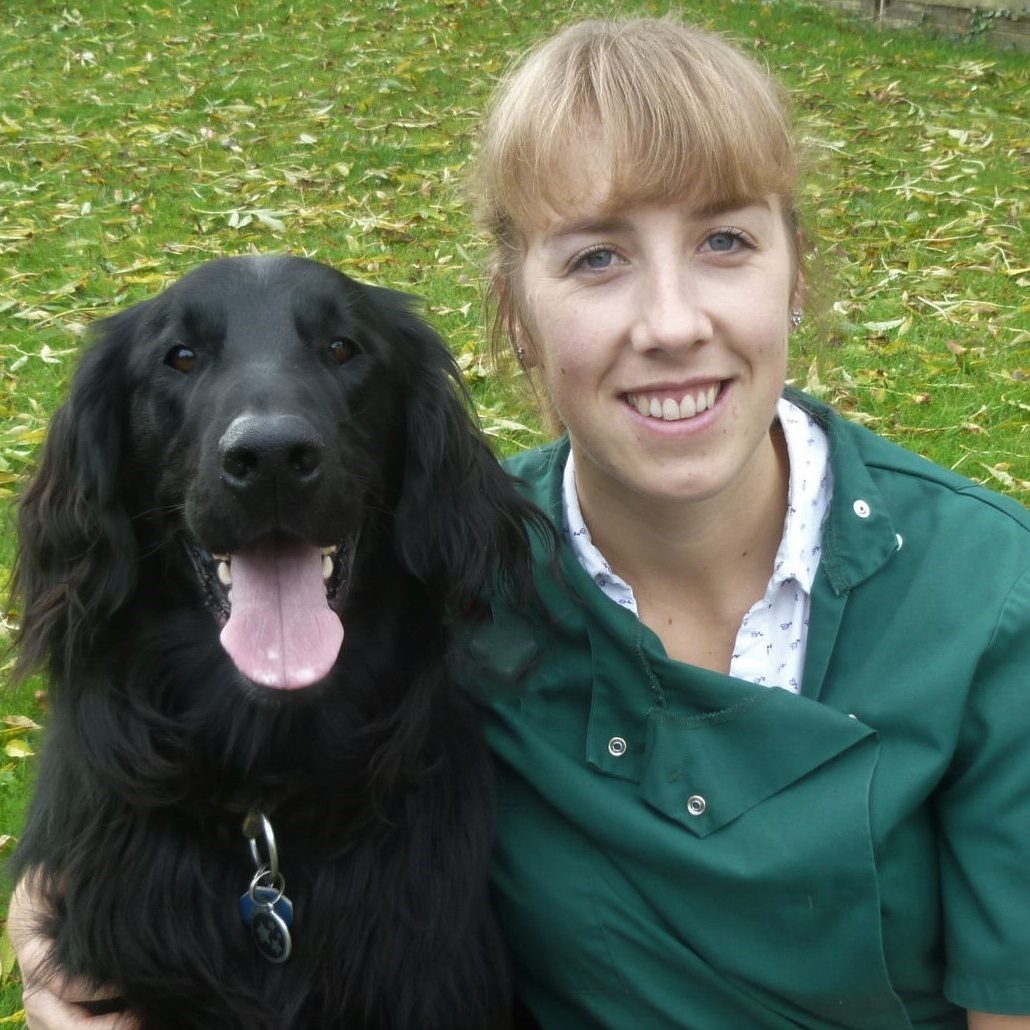
Rebecca is a vet surgeon who graduated from the Royal Veterinary College in 2009. She has a wealth of experience in first opinion small animal practice, having done a mixture of day-to-day routine work, on-call emergency duties and managerial roles over the years. She enjoys medicine in particular and she is proud to have recently achieved a BSAVA postgraduate certificate in small animal medicine (with commendation). She writes on various feline and canine topics, including behavior, nutrition, and health. Outside of work and writing she enjoys walking her own dog, spending time with her young family and baking!
PetsRadar Newsletter
Get the best advice, tips and top tech for your beloved Pets
- Dr Rebecca MacMillanVet
- Kathryn WilliamsFreelance writer
